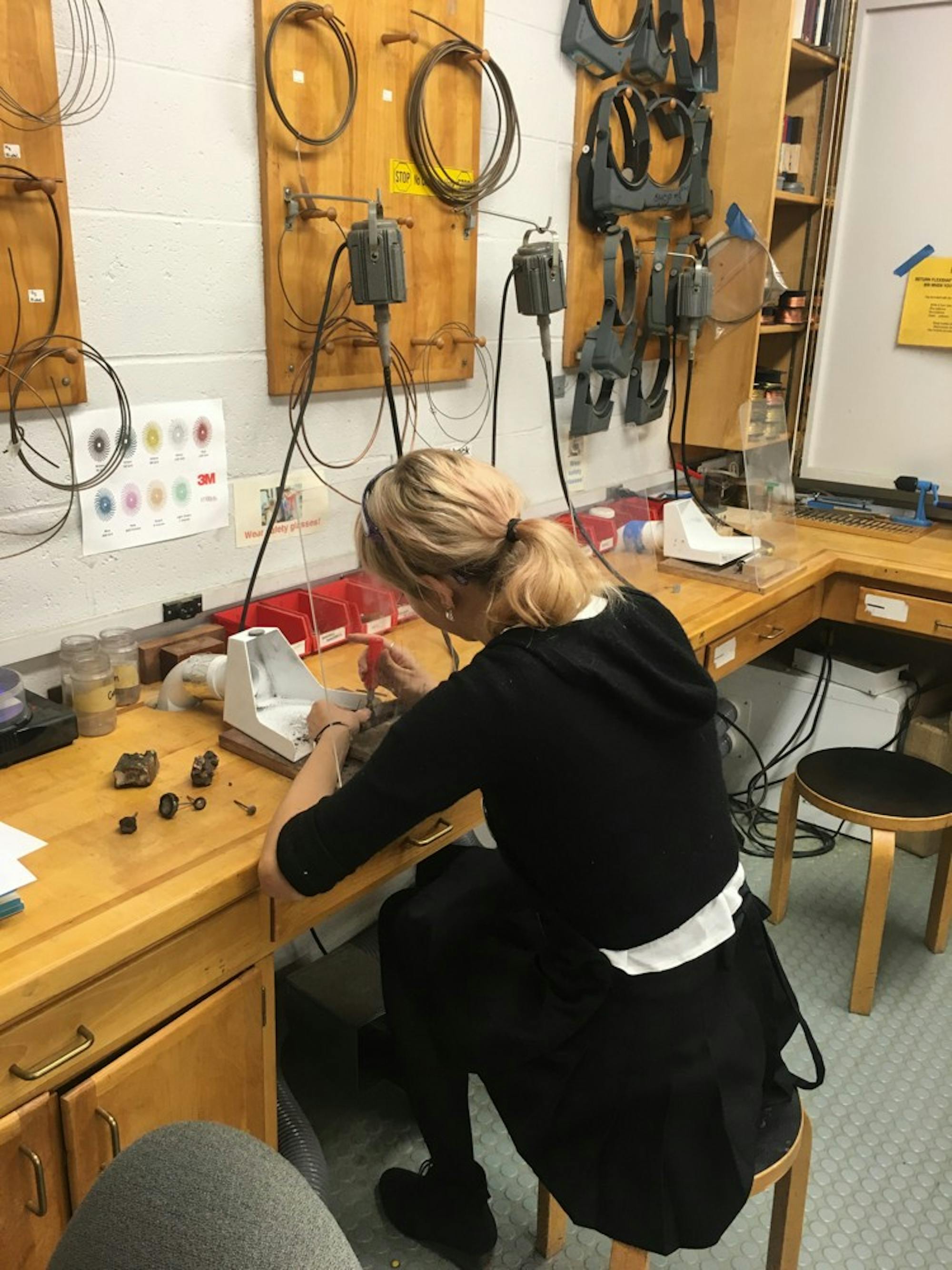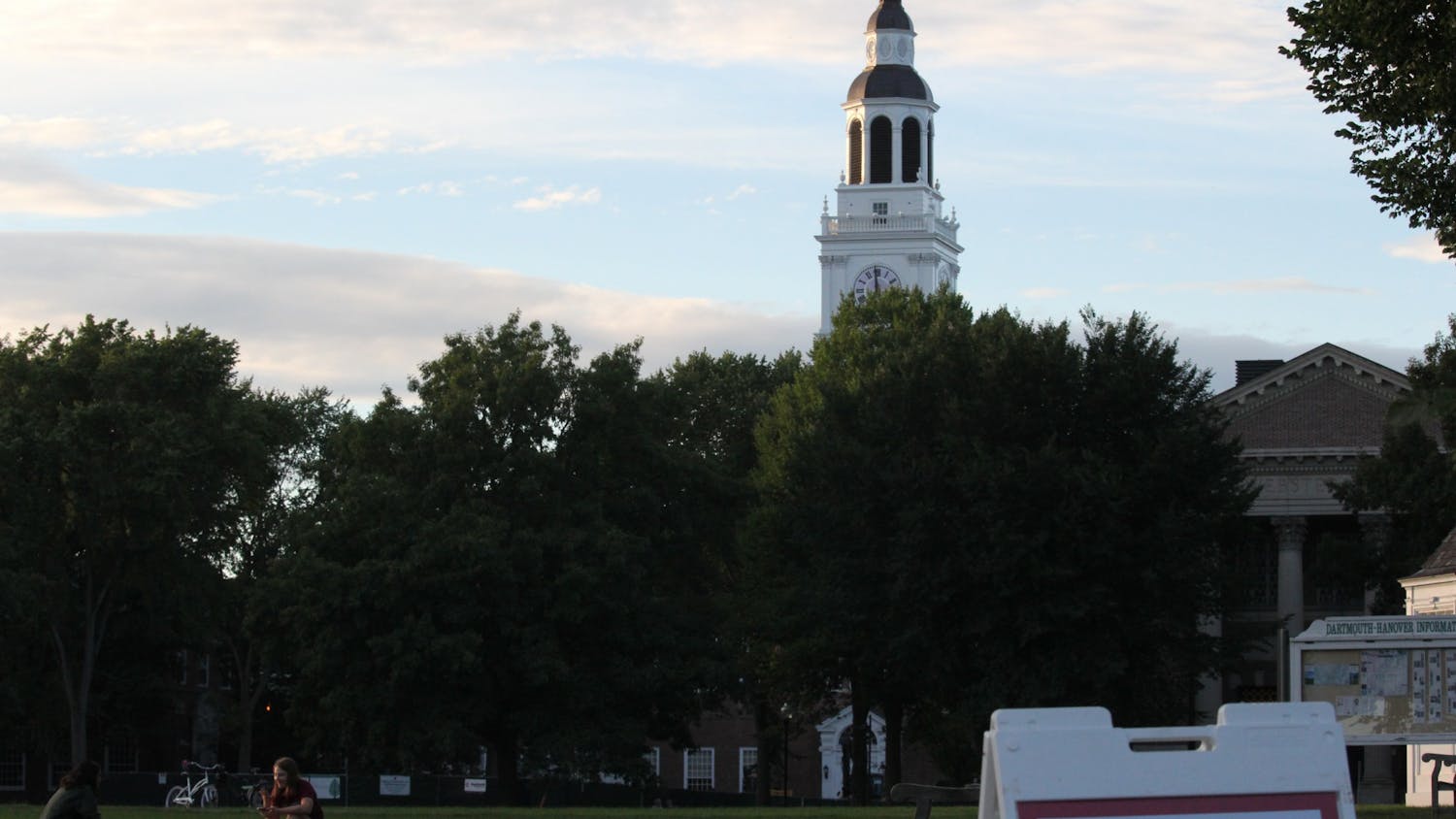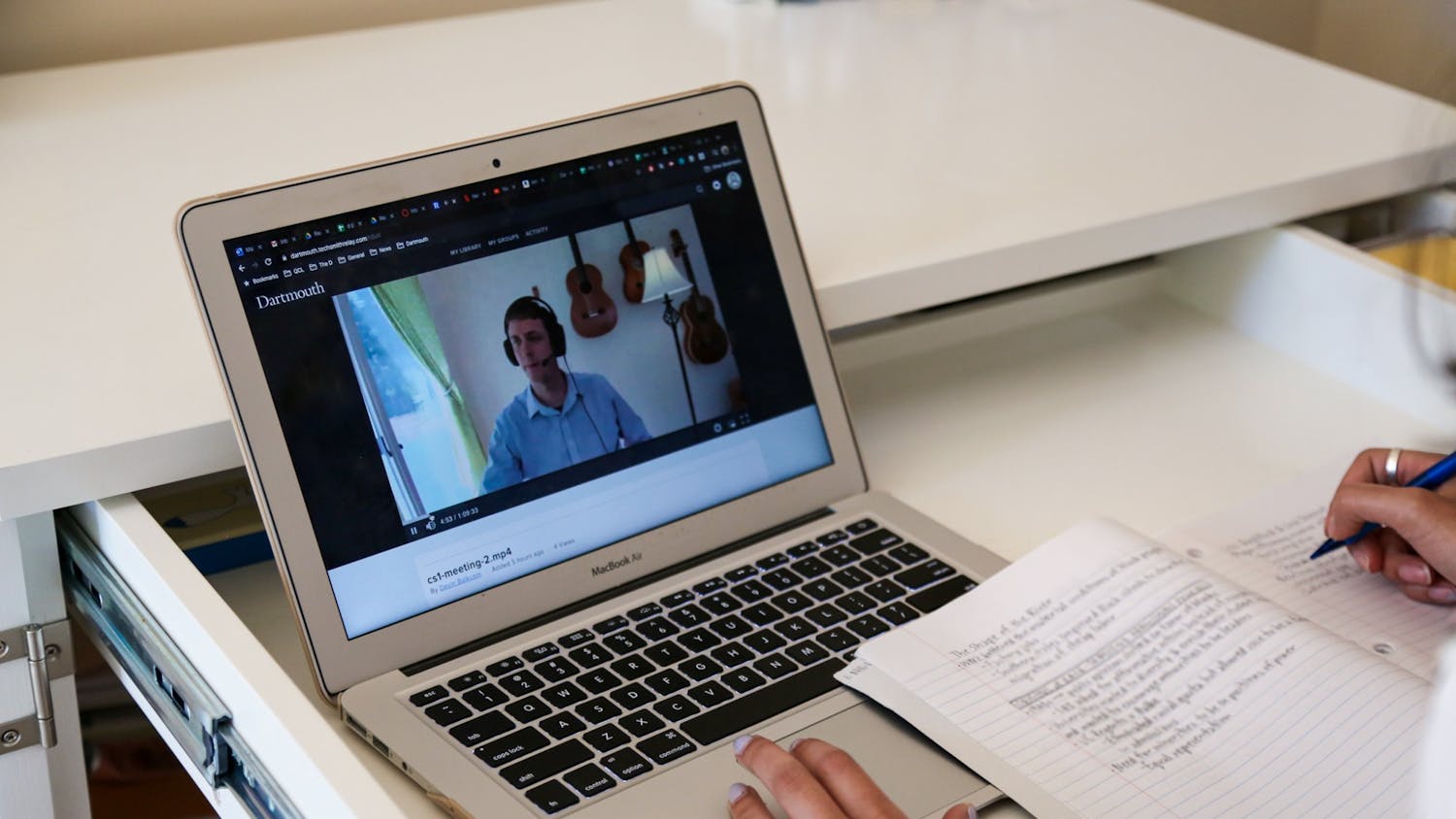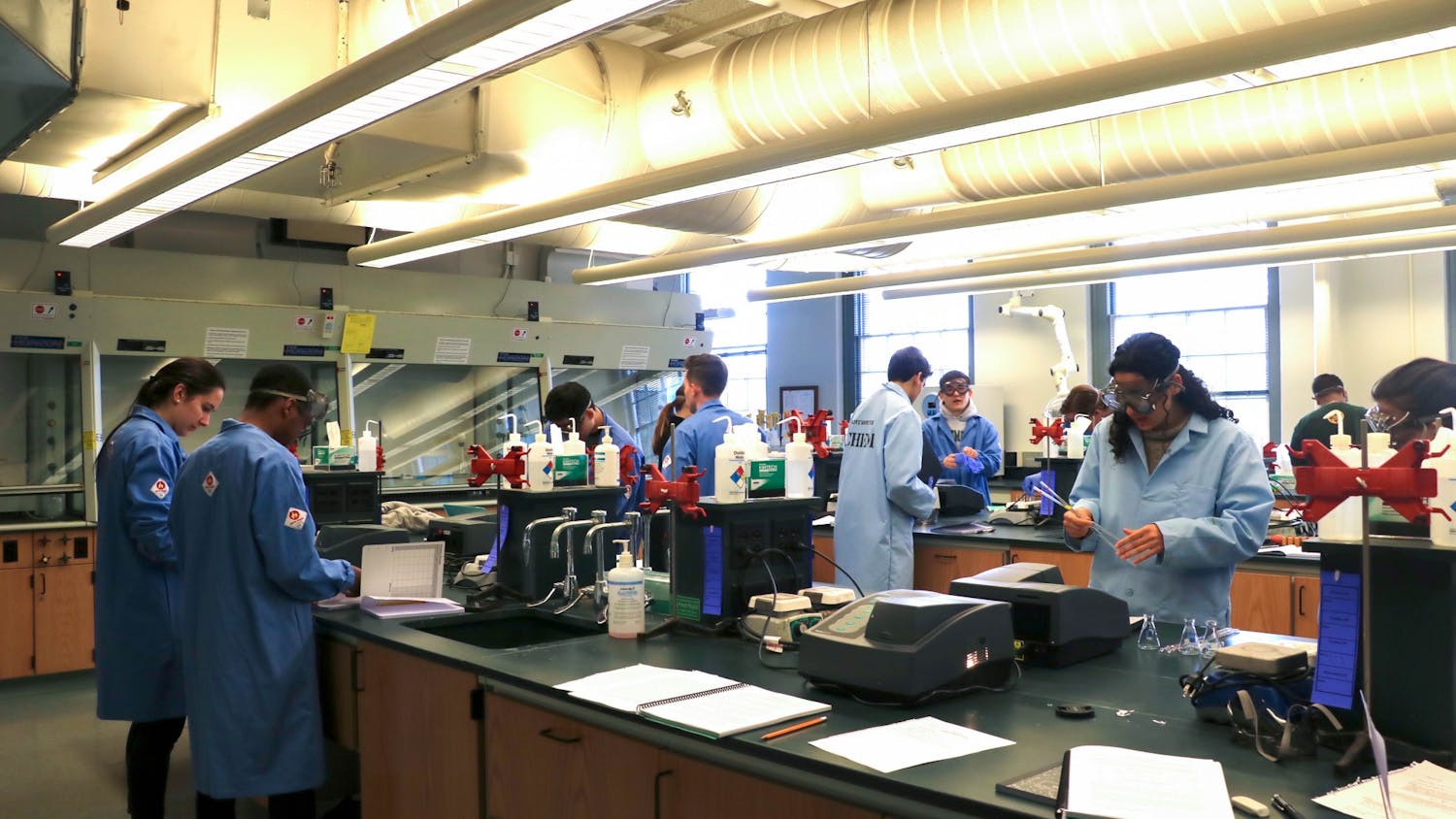This article is featured in the 2020 Freshman special issue.
It’s been well noted that incoming freshmen will experience an unconventional welcome fall term. The rest of us non-’24s will experience an unconventional welcome back as well, but, while ’21s, ’22s and ’23s have had the luxury of stumbling upon many of Dartmouth’s resources on campus serendipitously (or being handed them during orientation), ’24s likely won’t have that same opportunity.
Here is a guide to a few resources at Dartmouth that you might find useful as you acclimate to college life. Their services and programs are available remotely so that all students can participate, regardless of physical location. These resources range from providing fun ways to fill your 14-day quarantine to supporting you academically, mentally and emotionally through your first term at Dartmouth and beyond.
Undergraduate Advising and Research
UGAR offers resources for students interested in research, as well as professional guidance. Research opportunities for freshmen can often appear intimidating and scarce, but programs like the Women in Science Project are geared to connect freshmen, in this case women, with research opportunities on campus.
Anahita Kodali ’23 came to Dartmouth with specific interests in mind: the pre-med track and undergraduate research. For Kodali, this meant getting involved with “hardcore STEM” like biochemistry and physics. After working this past year with psychological and brain sciences professor Peter Ulric Tse through WISP, however, Kodali learned about multiple applications of science beyond medicine.
“[This research] really allowed me to take advantage of Dartmouth’s whole liberal arts education, and it’s given me a really cool team to work with for the foreseeable future,” Kodali said. She plans to continue her research with Tse this year as a sophomore research scholar.
Hop student workshops
The Hopkins Center for the Arts is commonly thought of as a location for performances and delicious quesos, but below the first floor are three student workshops: the Ceramics Studio, the Donald Claflin Jewelry Studio and the Woodworking Workshop. All three feature professional instructors to guide you through your creative projects.
Nathalie Korhonen Cuestas ’23 first encountered the student workshops during her first winter on campus through a floor activity at the jewelry studio. The activity served as a break from studying on the depths of 4FB for quickly approaching midterms and finals.
“It was a really fun floor activity because we got to do everything with our friends,” Korhonen Cuestas said. “None of us had any jewelry-making experience before, and we all came out of it with our very own handmade rings.”
Even though the studios haven’t been able to open in-person this summer, they have created a virtual “Make it at Home Series” that walks participants through various activities that might be fun ways to fill your 14-day quarantines.
Office of Pluralism and Leadership
OPAL offers support and provides a space for marginalized and underrepresented groups on campus. As an office, it aims to “foster a Dartmouth where all students can thrive, value difference and contribute to the creation of a socially just world.” There are a number of programs that specifically target freshmen through mentorship and advising, which are designed to foster lasting relationships throughout their time at Dartmouth.
Emily Chang ’21 became involved with OPAL during her first year at Dartmouth due to her interest in social justice, and has been able to grow with the programs over the years. She is involved with the OPAL Education Fellows program and OPAL E-Core Team, working to create inclusive programming and events for marginalized communities on campus.
“Ensuring that campus can be a place where all students feel represented is an important part of achieving social justice,” Chang said.
Subject librarians
Subject librarians at Dartmouth collectively specialize in over 60 subjects and departments. When you think of the word “librarian,” your brain might automatically call to mind history and English, but Dartmouth’s subject librarians also specialize in engineering, chemistry, medicine and much more — and they want students to make use of all that the libraries have to offer. Whether you are writing a research paper or working on a project, setting up an appointment with a librarian can help jump-start your assignment, especially when you don’t know where to start.
Business, economics and engineering librarian John Cocklin said that one of the most common things he hears after meeting with someone for the first time is, “Oh, I wish I had known about this sooner!” Humanities and social sciences librarian Wendel Cox noted that dedicating just a bit of time with every course to understand how the library can support students is like an investment.
“That is going to pay dividends year to year, and that will be absolutely invaluable by the time you come to a capstone at the end of four years,” Cox said.
You can make an appointment with a subject librarian through the library website, and they will work with you at any stage of your research to ensure that you are finding the most useful and effective resources in an efficient manner.
The Dartmouth Center for Social Impact
The “Dartmouth bubble” is often used to refer to the College’s isolation from the surrounding Upper Valley community. The DCSI aims to promote leadership skills and extend the College’s impact beyond campus through youth education and mentorship programs, internship funding for fields that promote the public good and other programs.
DCSI director Tracy Dustin-Eichler said that members of the Dartmouth community “all have an opportunity to make positive change in this world, and the [DCSI] offers so many different ways for students to build skills, make connections and gain the knowledge to do that.”
Ashkaan Mahjoob ’23 participated in Foundations in Social Impact, a program specifically designed for freshmen to get started at DCSI. After applying in the fall, Mahjoob underwent training in the winter term. During the spring term, Mahjoob and his team consulted for The Family Place, a center focused on promoting healthy growth for families with young children in the Upper Valley and surrounding communities. Many of the organization’s programs focus on mothers, so Mahjoob and his team were asked to create opportunities to involve fathers in the organization’s programming to ensure inclusivity.
“I learned that whatever you want to pursue career-wise, you can always incorporate social impact and doing good for those beyond yourself, which was a cool new outlook that I gained through Foundations,” Mahjoob said.
Student Accessibility Services
SAS exists to ensure that all students can access the programs, services and activities of the College. SAS assistant dean and director Alison May noted that she often sees two types of students who are not aware they may qualify for SAS support: students with diagnosed psychological conditions and students with chronic health impairments. Because of perceived ambiguity surrounding what qualifies for SAS support, May strongly encourages students to simply ask and see.
“We recommend that even if a student doesn’t think that they’ll be utilizing out services that please, reach out, apply and get registered with our office,” May said. “So in the event that a student were to decide that they did want to utilize accommodations or services, we could be in a position to quickly move and support, as opposed to everything needing to be put in place at the last minute.”
Particularly given the novel challenges that have arisen as a result of remote learning and will inevitably arise during quarantine, SAS has been especially understanding of students’ circumstances.
“It’s self-initiated, meaning people don’t come chasing after you,” May said. “We can be as much or as little a part of your experience as you would like.”
William Jewett Tucker Center for Spiritual and Ethical Life
The Tucker Center is a place for students from all spiritual and religious backgrounds. The center supports offers confidential counseling and provides a space for students to engage with faculty and staff about the vast world of ethics, self-discovery, spirituality and more.
Dean and chaplain of the Tucker Center Rabbi Daveen Litwin said the center has worked to ensure that it can support students during quarantine, especially because holidays may fall during that time frame and usual celebrations must be modified to accommodate public health guidelines.
Dartmouth and the Tucker Center recognize and support many religious student groups, and though these groups are religiously affiliated, they tend to embrace those of all affiliations and backgrounds. Russell Rapaport ’22, a member of the Jewish student group Hillel, said that he “enjoys Friday night Shabbat dinners because they're a nice way to kick off the weekend. They’re welcoming of everybody, so it makes a great community.”
Student Wellness Center
The SWC works to promote the well-being of students at Dartmouth by taking a holistic approach to care through its three main pillars of reflection, connection and intention. Though it works closely with Dartmouth Health Services, SWC director Caitlin Barthelmes emphasized that the center tries to tackle issues proactively, before they are large enough to necessitate the involvement of health services.
The center will play a unique role in addressing the impact of self-isolation and COVID-19-related stress on students’ mental and emotional well-being, and it has worked especially hard in recent months to convert its support services to a remote format. Examples include posting meditation clips to YouTube and holding group yoga sessions and “wellness walks” over Zoom.
Barthelmes noted that the 14-day quarantine upon arrival for the fall could have advantages and disadvantages for freshmen.
“I do think there will be new obstacles that we will navigate together, but I think it’s equally important that it could also be an interesting way to start your college career,” Barthelmes said. “One that gives you a moment of personal space that previously might’ve gotten swept away with all the activities and meeting new people.”




